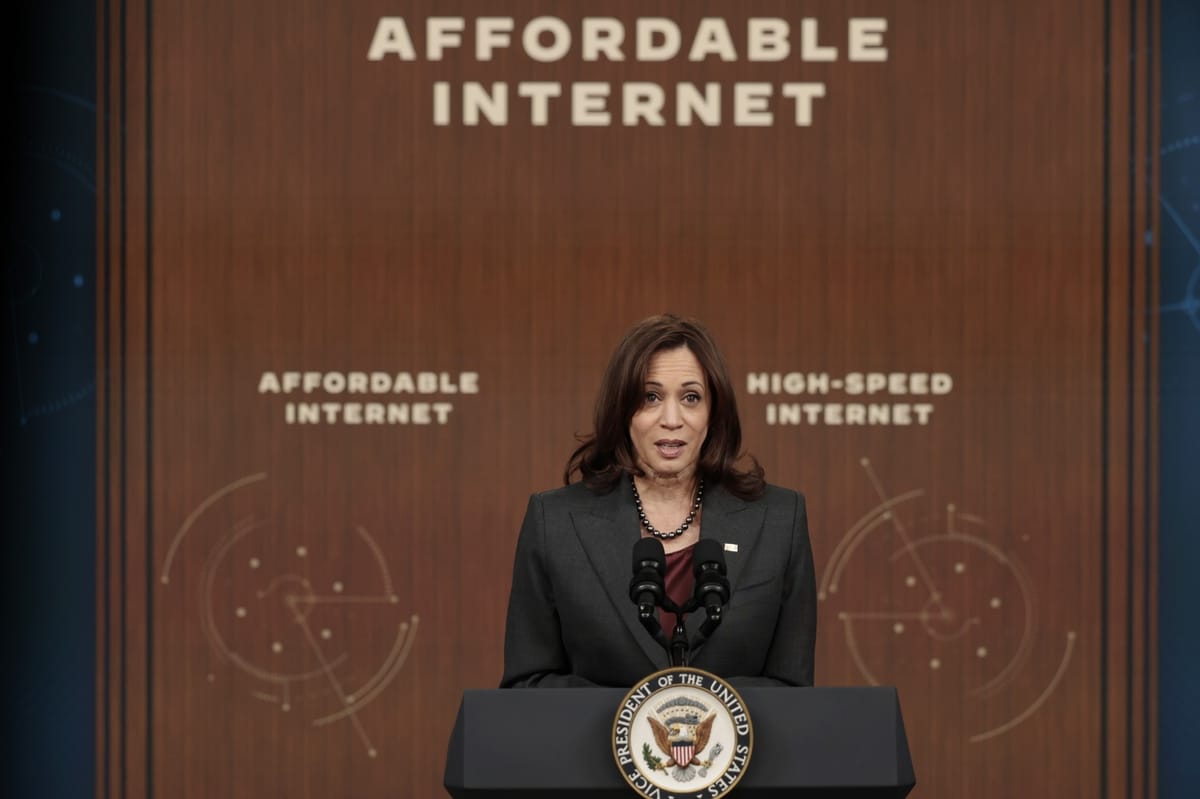
What’s New
There is about to be a much bigger problem over broadband affordability and no one wants to get blamed for that.

 Photo of Vice President Kamala Harris from Philanthropy News Digest
Photo of Vice President Kamala Harris from Philanthropy News Digest
We’re beginning to see some tension between the Biden-Harris Administration’s twin broadband goals of “internet for all” and “affordable” broadband internet for all.
And, would you believe it or not, politics does factor into the equation!
From the beginning, the administration has paired its push for universal broadband (which sometimes seems to focus on rural communities) with an equally strong push for low-cost broadband. That is of often framed as something of strong interest to poorer, urban communities
The Commerce Department’s National Telecommunications and Information Administration lays this out in its “Internet for All” web site:
Broadband Equity, Access, and Deployment (BEAD) Program | Internet for All
This program builds high-speed Internet infrastructure where we need it. It also supports efforts to teach the skills and provide the equipment needed so everyone can use the Internet.

High-speed Internet access isn’t a luxury. It’s needed to fully engage in the economy, and it helps ensure public safety and the health of our nation. Unfortunately, too many in America lack access to affordable, reliable high-speed Internet.
The short version of this story is that Republicans, seeking some kind of advantage over Democrats in an election year, are highlighting a panoply of actions by the Federal Communications Commission and NTIA that they regard as being overly-regulatory.
Think the proposed net neutrality rules. Think the digital discrimination order. Even think – if you close your eyes and blink a little bit – that the NTIA rules in the Broadband Equity, Access and Deployment program are imposing a form of “price control” on ISPs.
Here’s the slightly longer version of the story: The presumed death of the Affordable Connectivity Program is only likely to exacerbate these tensions. Practically everyone that Broadband Breakfast speaks with agrees that the ACP should be extended, including many and perhaps most conservatives and Republicans. But the ACP has not been a priority of House GOP leadership. The FCC has already begun the formal wind-down process for ACP. And if that happens, there is about to be a much bigger problem over broadband affordability.
No one wants to get blamed for that.
And yet someone will be.
On December 15, 2023, Broadband Breakfast reported on the battle between Virginia’s (red state) Gov. Glenn Younkin and the NTIA over exactly this issue:
WASHINGTON, December 15, 2023 – Virginia is at odds with the National Telecommunications and Information Administration over affordability requirements for the agency’s broadband expansion program….
Virginia and NTIA at Odds on BEAD Low-Cost Option
The state wants to avoid setting out a price or formula for what BEAD-funded providers can charge low-income households.
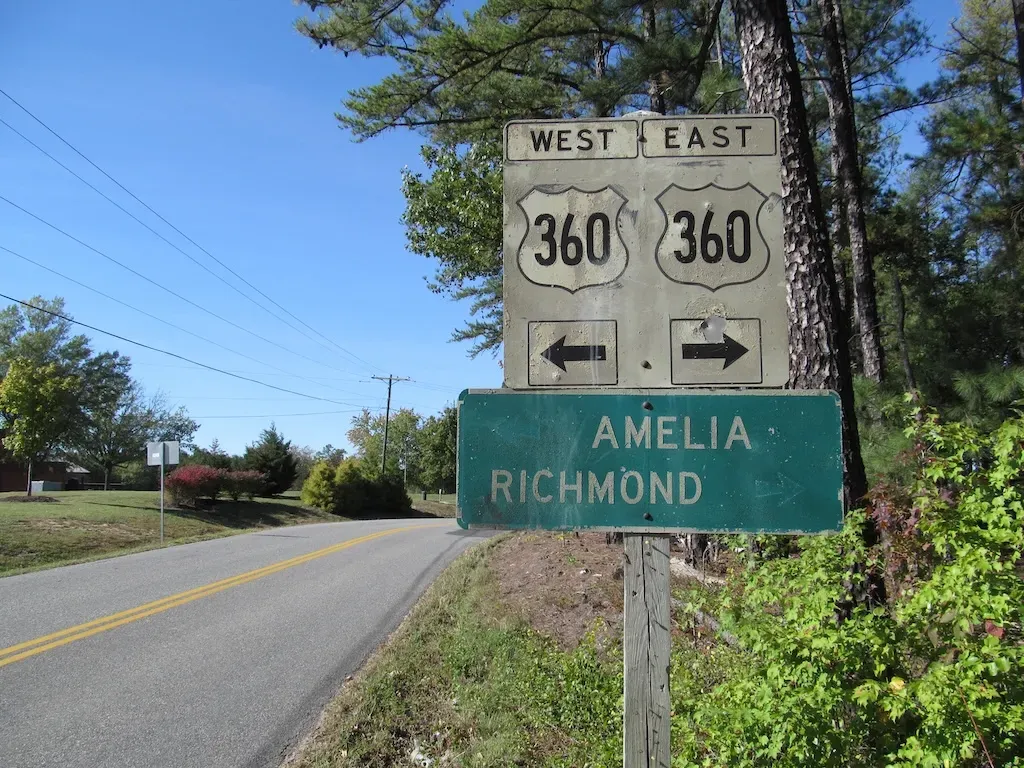
Virginia and NTIA at Odds on BEAD Low-Cost Option
A provision of the program requires that providers set up an affordable plan for low-income households on BEAD-funded infrastructure. States are directed by the NTIA to either explicitly set out in their proposals what that low-cost price point will be, or to share with the agency a formula that will be used to determine that price.
The draft volume two of Virginia’s initial proposal, which outlines the state’s plans for choosing grant winners under the program, does neither. The state is proposing to require that grant applicants outline and justify their own low-cost options as part of the application process.
After the state submitted its volume two to the NTIA, the agency wrote in a letter to the state that it “must be able to determine the impact to a customer at the Initial Proposal stage – it isn’t enough to know as of the Final Proposal. Thus the low-cost option must be established in the Initial Proposal as an exact price or formula.”
Virginia is concerned that would amount to “rate regulation,” which the Infrastructure Act bars the NTIA from doing as part of BEAD, and is asking the agency to accept its proposal without changes to the low-cost provision.
“We respectfully request that NTIA accept Virginia’s proposed definition of its low-cost option as submitted,” the state’s newly submitted proposal reads.
More than 100 days later, Virginia’s Volume 2 still hasn’t been approved – and neither have any other state besides Louisiana, according the NTIA’s BEAD progress tracker.
Over the past week, the issue of affordability has come up in multiple contexts, including before the House Energy and Commerce Committee. All of the committee’s Democrats wrote on March 26 to NTIA Administrator Alan Davidson that the agency needed to hold the line in emphasizing affordability.
“It would be a significant missed opportunity in the administration of BEAD if these affordability provisions are not exercised to their fullest to help middle-class and low-income Americans afford the cost of internet service,” they wrote:
House Democrats Urge NTIA to Prioritize Affordability for BEAD
Their Republican counterparts and conservative groups have opposed the agency’s low-cost policies.

Louisiana, the only state to have its BEAD proposal fully approved by the NTIA, set its baseline low-cost option at $30, effectively providing free internet for low-income consumers and stable revenue for providers should Congress act to refund the ACP or a successor program. The state will give applicants room to raise low-cost plans to $65 if necessary for the financial sustainability of a project.
The agency has shown a preference for Louisiana’s approach. In response to a draft proposal from Virgina which would require providers to propose and justify their own low-cost plans, the NTIA asked for something stronger.
The agency “must be able to determine the impact to a customer at the Initial Proposal stage – it isn’t enough to know as of the Final Proposal. Thus the low-cost option must be established in the Initial Proposal as an exact price or formula,” it said in a letter to the state.
The battle isn’t over yet. After all, it’s still more than seven months until the election.
Other Broadband Breakfast stories from last week
A few other noteworthy and hard-hitting stories from last week include:
The high cost of building broadband continues to rankle. But other groups (besides those seeking amnesty) are “vehemently opposed”:
RDOF Winners Seek Amnesty Amidst Rising Costs
The RDOF winners point to unexpected surges in broadband construction costs occurring after the auction.

Now that we finally have an address-by-address national broadband map, parties are divided on an FCC proposal to update it:
Broadband Industry Groups Urge Caution on Using Fabric Data for High-Cost Compliance
Commenters noted that the fabric is iterative, and changes to the data could cause confusion.
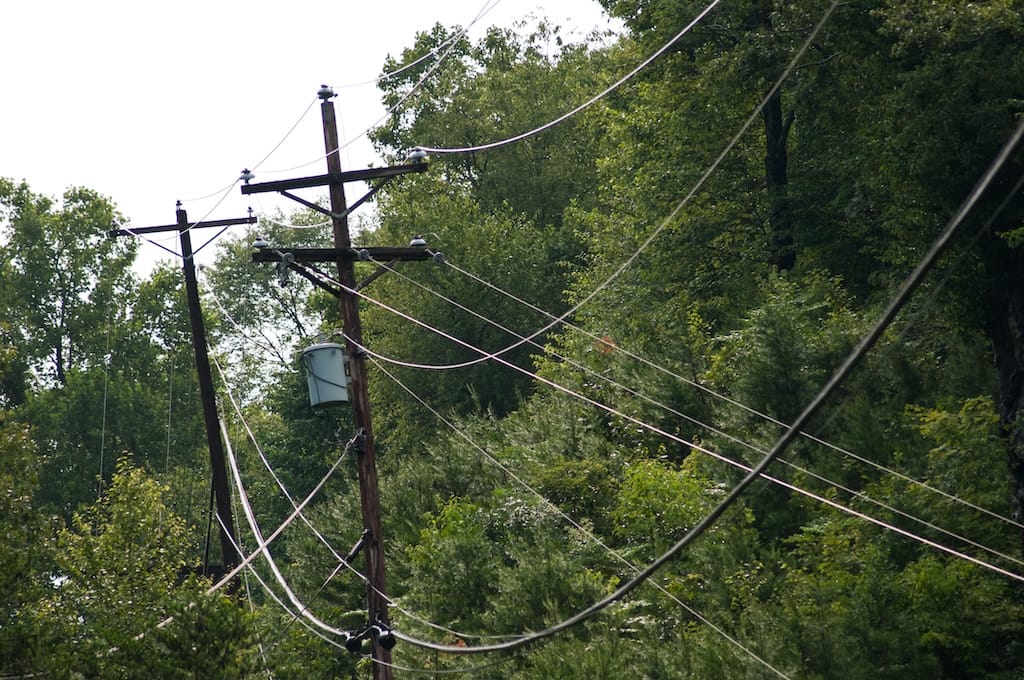
Here’s that affordability versus universal broadband coverage issue again. But this time, the shoe is on the offer foot. The Biden administration’s FCC is proposing to ban bulk billing in multiple dwelling units, which would almost certainly raise prices, at the expense of consumer choice:
Broadband Providers Push Back on Proposed Bulk Billing Ban
NCTA urged the commission to seek input before concluding the practice should be blocked.

And, an internet service provider has been fined $10,000 for lying to the Federal Communications Commission about where it offers broadband service:
FCC Imposes $10,000 Fine on ISP for False Broadband Claims
A leaked email from a company exec revealed that the false data was a deliberate attempt to prevent competitors from accessing government grants earmarked for broadband expansion in the region.

The week ahead
Don’t miss a special Broadband Breakfast webinar on “Public Private Broadband Partnerships” at 2 p.m. on Tuesday, April 2:
April 2, 2024: Public-Private Broadband Partnerships
The digital infrastructure is evolving at exponential rates and the demand for smarter systems and a more connected world is imperative to the progression of our communities.

This webinar hosted by SmartWAVE Technologies will explore the value of Public-Private Partnerships when deploying community wireless broadband projects. SmartWAVE has deployed numerous free public wifi networks for cities and counties throughout the U.S. It takes a village, and this webinar will show you everyone that needs to get involved to successfully get the community connected.
This week’s Broadband Breakfast Live Online at Noon on Wednesday, April 3, will focus on “The Promise of Precision Agriculture”:
Broadband Breakfast on April 3, 2024 – The Promise of Precision Agriculture
Efforts to enhance broadband connectivity on agricultural land are gaining momentum
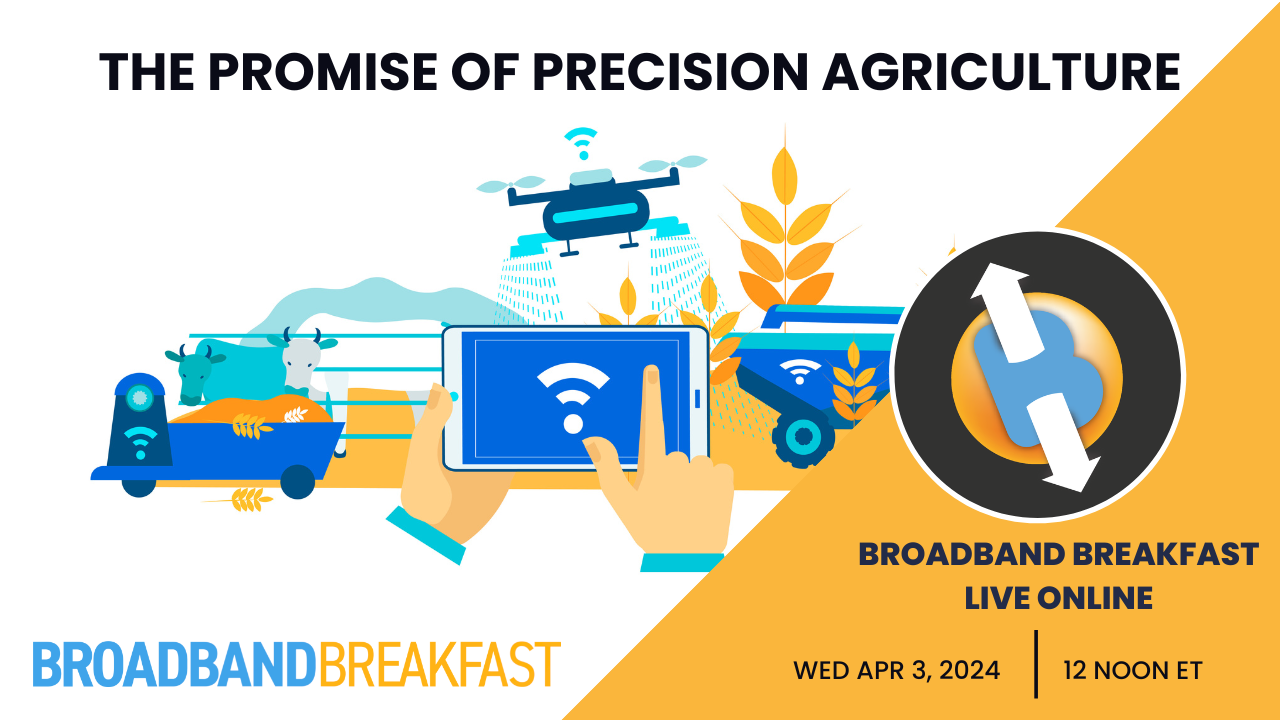
And, we’re excited about the special NCTA-Broadband Breakfast Live Online an In-person Lunch, at a special time of 11 a.m. ET-12:30 p.m. ET on Wednesday, April 10. Sign up now!
Broadband Breakfast on April 10, 2024 – Achieving Internet for All, Addressing Discrimination and Rurality
This special NCTA-Broadband Breakfast hybrid event will shed light on broadband availability data across demographics.
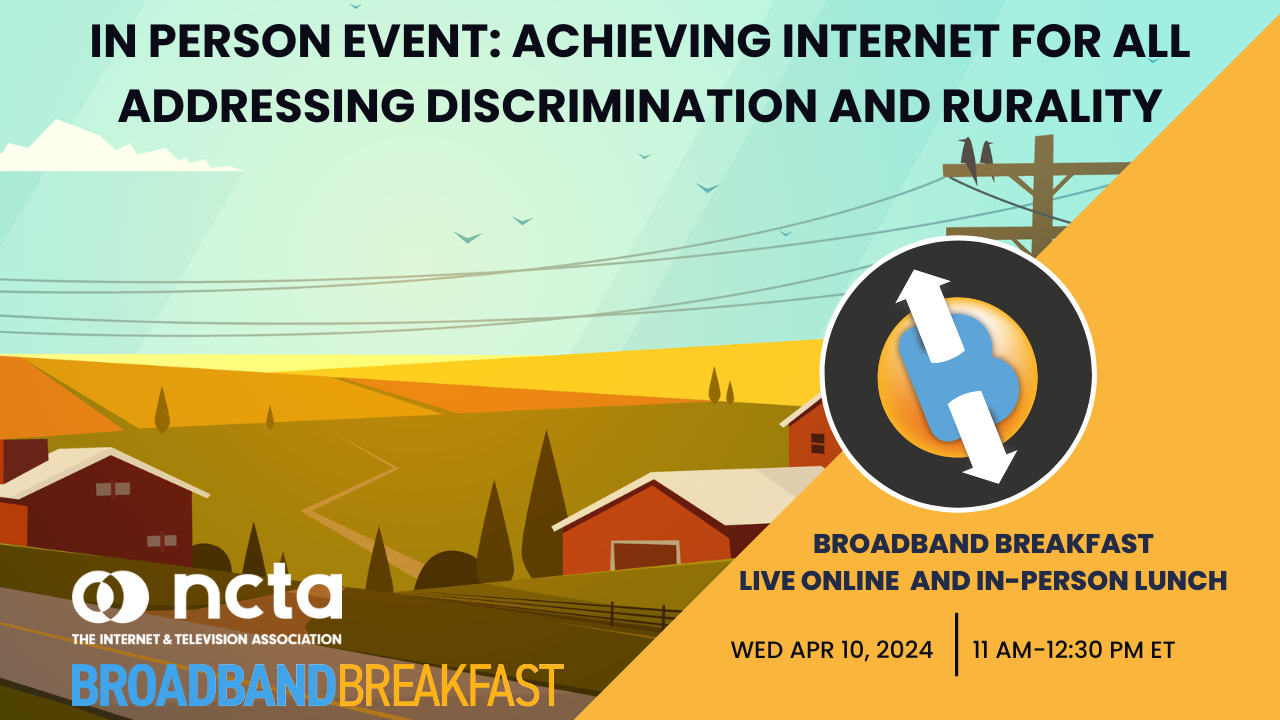
Have a great week!
Drew Clark
Broadband Breakfast
drew@breakfast.media


